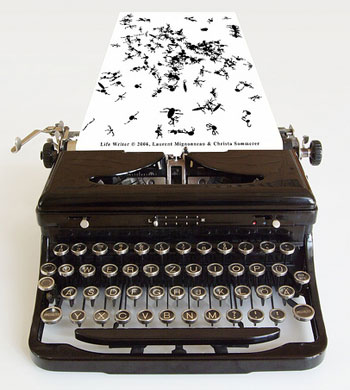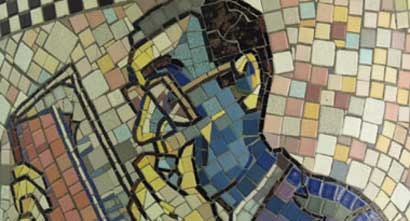«Catherine of Aragon: Henry’s Spanish Queen»
 El miércoles día 8 de Diciembre se celebra en el Instituto Cervantes la presentación del libro «Catherine of Aragon: Henry’s Spanish Queen» de Giles Tremlett. Se trata de un magnífico relato sobre la vida de la infanta española que llegó a ser Reina de Inglaterra y que cambió el curso de la historia de los Tudor. Enrique VIII introdujo cuatro magníficas mujeres en la tumultuosa historia de Inglaterra: Catalina de Aragón y su hija la Reina María de Inglaterra, María La Sanguinaria; Ana Bolena y su hija, la Virgen Reina de Inglaterra.
El miércoles día 8 de Diciembre se celebra en el Instituto Cervantes la presentación del libro «Catherine of Aragon: Henry’s Spanish Queen» de Giles Tremlett. Se trata de un magnífico relato sobre la vida de la infanta española que llegó a ser Reina de Inglaterra y que cambió el curso de la historia de los Tudor. Enrique VIII introdujo cuatro magníficas mujeres en la tumultuosa historia de Inglaterra: Catalina de Aragón y su hija la Reina María de Inglaterra, María La Sanguinaria; Ana Bolena y su hija, la Virgen Reina de Inglaterra.
En palabras de David Starkey:» la competición entre dos madres y dos hijas originó la pasión religiosa y la violencia que inflamó Inglaterra durante siglos». La Reforma, la revolución y la historia de la familia Tudor habrían sido muy distintas sin Catalina de Aragón.
Asimismo, en relación a la lanzamiento del libro, el periódico británico The Guardian publicó el siguiente artículo el pasado 31 de Octubre:
http://www.guardian.co.uk/books/2010/oct/30/catherine-aragon-giles-tremlett-review
Presentación del libro «Catherine of Aragon: Henry’s Spanish Queen»
Miércoles 8 Diciembre a las 6.30pm.
Instituto Cervantes
Premios literarios
 El pasado 24 de Noviembre la escritora Ana María Matute recibió el premio Cervantes, el galardón más prestigioso de las letras en lengua española. Se trata de la tercera mujer distinguida con este galardón en los 35 años de vida del premio. La autora, de 85 años, ha sido galardonada por su obra compuesta por 12 novelas y varios volúmenes de cuentos, ahora reunidos en La puerta de la Luna, desde los primeros textos de 1947 hasta 1998.
El pasado 24 de Noviembre la escritora Ana María Matute recibió el premio Cervantes, el galardón más prestigioso de las letras en lengua española. Se trata de la tercera mujer distinguida con este galardón en los 35 años de vida del premio. La autora, de 85 años, ha sido galardonada por su obra compuesta por 12 novelas y varios volúmenes de cuentos, ahora reunidos en La puerta de la Luna, desde los primeros textos de 1947 hasta 1998.
________________________________________________________________________________________
Por otra parte, el pasado 7 de Octubre el escritor hispano-peruano Mario Vargas Llosa fue galardonado con el premio Nobel de literatura, el premio más prestigioso de las letras universales. El escritor ha volado hoy a Estocolmo donde el próximo 10 de Diciembre recibirá el premio. El diario El País recoge hoy en sus páginas un sumario de la entrevista que ha concedido a los periodistas a su llegada a la capital. El artículo se encuentra disponible a través de la siguiente dirección web:
El olvido que seremos (Oblivion)
 «El olvido que seremos (Oblivion)» es la biografía desgarradora, pero no sentimental, que el autor Héctor Abad, le dedica a su padre Héctor Abad Gómez, un activista de izquierdas asesinado por los paramilitares en 1987 en Medellín. El libro fue presentado el día 13 de Octubre de este año en el Instituto Cervantes.
«El olvido que seremos (Oblivion)» es la biografía desgarradora, pero no sentimental, que el autor Héctor Abad, le dedica a su padre Héctor Abad Gómez, un activista de izquierdas asesinado por los paramilitares en 1987 en Medellín. El libro fue presentado el día 13 de Octubre de este año en el Instituto Cervantes.
En relación a ello, el pasado sábado 27 de Noviembre, el periódico británico The Guardian publicó una reseña de la obra en sus páginas.
El artículo puede consultarse a través de la siguiente dirección web:
http://www.guardian.co.uk/books/2010/nov/27/oblivion-memoir-hector-abad-review
WriteIdea Festival 2010

The WriteIdea Festival is a London’s free reading festival that takes place from 12-21 November near Tower Hamlet.
“Our City” is the theme of this year’s programme. It is focused on East London. The festival starts in style with a conversation with Tony Benn on November 12 and it includes poets, politicians, presenters, philosophers, performers as well as novelists and other writers talking about their work.
The distinguished authors that will take part in the festival are: Caroline Gilfillan, Salena Godden, Adam O’Riordan, Sarah Wise Paul Willetts, Martin Knight or Rob Young, to name a few. Signed books will be available to buy!
All events are free but will be ticketed so make sure you reserve a place.
Find the complete programme here!
Enjoy the WriteIdea Festival 2010!
El Colectivo Magazine Reading Group
El Colectivo Magazine Reading Group offers the opportunity to talk about and discuss Spanish literature, imitating the traditional Spanish tertulia.
The reading group meets one Friday per month at 6.30pm in the Instituto Cervantes; it is free to join and you are welcome to come along to any session.
In order to participate, there is only one requirement: to have read the scheduled book.
These are the titles and the dates for the last four months of 2010
Friday 17 September, 6.30pm
- El general en su laberinto by Gabriel García Márquez
Friday 15 October, 6.30pm
- Un milagro en equilibrio by Lucía Etxebarría
Friday 19 November, 6.30pm
- Abril rojo de Santiago Roncagliolo
Friday 10 December, 6.30pm
- Los informantes by Juan Gabriel Vásquez
In collaboration with El Colectivo Magazine.
For more information: grupo(at)elcolectivolondres.com
- Felix Bruzzone
- Juan Francisco Ferré
- Iosi Havilio
- Pola Oloixarac
- Sergio Olguin
Certamen de Relatos El Colectivo
 El Colectivo Londres Magazine convoca, con el fin de promocionar la literatura en español así como las obras de creadores en español, su primer certamen de Relatos El Colectivo Londres en colaboración con la entidad Iberica Food and Culture.
El Colectivo Londres Magazine convoca, con el fin de promocionar la literatura en español así como las obras de creadores en español, su primer certamen de Relatos El Colectivo Londres en colaboración con la entidad Iberica Food and Culture.
Las bases del concurso son las siguientes:
[1] Participantes: podrán concurrir a la convocatoria todos los trabajos inéditos escritos en lengua castellana, cualquiera que sea la nacionalidad y residencia del autor.
[2] Características del relato:
La extensión podrá ser de entre cuatro a diez páginas, mecanografiadas a doble espacio y con tipo de letra Times New Roman 12.
Los relatos deben tener alguna relación con la ciudad de Londres (Reino Unido), en el más amplio sentido de la palabra.
[3] Fecha: El plazo de admisión de obras quedará abierto desde la fecha de esta convocatoria hasta el 28 de septiembre de 2010.
[4] Premio: El Premio está dotado con QUINIENTAS libras esterlinas para el ganador. De esta cantidad se deducirá, si fuera pertinente, el IRPF correspondiente, así como los gastos de la transferencia bancaria, en caso de encontrarse la cuenta beneficiaria fuera del Reino Unido
[5] Requisitos de presentación:
Cada autor podrá presentar un máximo de dos obras por triplicado, asegurándose de que en ningún lugar del relato aparezca el nombre del autor.
Dentro del sobre principal en el que se enviará el relato debe incluirse otro sobre cerrado en cuyo exterior figure el título de la obra y que contenga los datos del concursante: nombre, apellidos, domicilio, teléfono, correo electrónico así como un breve currículum.
Las obras se enviarán a:
FAO: Relatos El Colectivo Londres
Iberica Food&Culture
Great Portland Street 195
W1W 5PS, London
United Kingdom
The secret history of Costaguana
 ICLL Podcast series: New Episode (in English)
ICLL Podcast series: New Episode (in English)
Book launch
London 1903, and Colombian José Altamirano has just arrived from a place he wishes to forget, shouldering a past he regrets and more guilt than anyone can carry.
He could have stopped the cession of the Panama territory, but chose not to. He then realises that Joseph Conrad is beginning to publish Nostromo, recounting a story he once related to him, and that he is being marginalised and virtually erased from that history.
Juan Gabriel Vázquez was born in bogotá in 1973 and now lives in Barcelona. His essays, reviews and reportages have appeared in various magazines and literary supplements. He was recently nominated as one of the «Bogota 39», South America’s most promising writers of the new generation.
http://londres.cervantes.es/FichasCultura/Ficha63189_22_1.htm
The Life and poetry of Miguel Hernández = La vida y la obra de Miguel Hernández
 ICLL Podcast series: New Episode (in Spanish)
ICLL Podcast series: New Episode (in Spanish)
Round Table discussion about the life and poetry of Miguel Hernández.
Participants: Rosa Navarrro, University of Barcelona & Alan Feinstein, writer & translator.
Miguel Hernández was born in Orihuela (Alicante) in 1910. His poetry is characterised by its strong lyricism, exemplified in both his first collection of poems, Perito en lunas (1933), and in his classical sonnets such as El rayo que no cesa.
His poems cover the themes of love, death, war and injustice, themes of which he had personal and intense experience. He fought with the Republicans during the Spanish Civil War.
In prison he wrote Cancionero y romancero de ausencias (published in 1958), poems dedicated to his wife who lived in miserable conditions. He died in prison at the age of 31. (In Spanish)
http://londres.cervantes.es/FichasCultura/Ficha63188_22_2.htm
Gonzalo Torrente Ballester en su centenario
 About two years ago we, at the Cervantes Institute Library, received an anonymous call offering a donation of books in Spanish.
About two years ago we, at the Cervantes Institute Library, received an anonymous call offering a donation of books in Spanish.
A mi querida amiga Elenita, a la que amo hace algún tiempo… Cuando nos conocimos a los 20 años. ¿Verdad?*
*To my darling friend Elenita, whom I have loved for quite some time … ever since we met when we were 20, true?
The poetry of Jaime Siles from 1969-2009 = La poesía de Jaime Siles
 ICLL Podcast series: New Episode (in Spanish) Jaime Siles talks about his development as a poet since 1969, discussing and reading the most representative poems of different periods of his evolution.
ICLL Podcast series: New Episode (in Spanish) Jaime Siles talks about his development as a poet since 1969, discussing and reading the most representative poems of different periods of his evolution.
Jaime Siles habla sobre su evolución poética desde 1969 hasta hoy, ilustrándola con la lectura y comentario de los poemas de diferentes épocas que considera más representativos.
Jaime Siles is an award-winning poet and critic. He is Professor of Classic Philology and has taught in various European universities. Currently, he teaches Classic Philology at the University of Valencia and is the President of the Spanish Society of Classical Studies. He also writes essays and literary criticism. Since 2005 he has written for the daily newspaper ABC. he is also a permanent member of the Royal Academy of Culture of Valencia.






